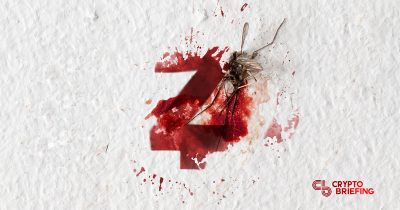Snowden Praises Zcash For Squishing Counterfeit Bug

Share this article
Zcash (ZEC) could be the only blockchain project in which a gaping security flaw can bring the community together. But support is pouring in, after the Zerocoin Electric Coin Company (Zcash Co) revealed a counterfeiting vulnerability that could potentially put put billions of dollars in the crosshairs.
According to an announcement, published yesterday, the vulnerability in the zero-knowledge protocol could have allowed hackers to print an arbitrary number of tokens, thereby reducing the value of the authentic coins . However, the revelation did not appear to dampen enthusiasm among the community, many of whom came to the company’s support.
One of those defenders was the privacy guru himself, NSA whistleblower Edward Snowden.
A lot of people wonder why I like #Zcash despite the Founder's Reward. Here's a reason: that tax funds a quality team that catches and kills serious bugs in-house, before they get exploited. Some other projects learn about bugs like this only AFTER people have lost money. https://t.co/i9MD1CpeNx
— Edward Snowden (@Snowden) February 5, 2019
The “tax” actually refers to the Zcash Founders’ Reward, which reflects 10% of the mined supply of 21 million coins. The funds that are directed toward funding operations across “founders, investors, employees and advisors,” and according to Snowden, the bounty is what makes all the difference. It’s a controversial model, one that led to the creation of ZClassic (ZCL) as a fork of Zcash without a Founders’ Reward.
Zooko Wilcox, the CEO of the Zerocoin Electric Coin Company, was quick to point out a distinction in Snowden’s characterization of a “tax,” reminding the community that the rewards are made possible through donations by stakeholders. Wilcox said in the Twitter thread:
“[Tax] implies non-consent, and people participate in Zcash only voluntarily.”
Zcash Is a Clone of Bitcoin
For a voluntary donation, the Founders Reward sure has divided the crypto community. As Wilcox explains it, however, Zcash is really a clone of bitcoin. Similar to BTC, there will ultimately be 21 million ZEC mined. The difference in the models comes down to how the supply is allocated.
While the bitcoin model originally earmarked 50 coins every block or every 10 minutes for miners, Zcash’s originally directed 40 coins toward the miners every 10 minutes, and 10 coins to the founders. As a result, Wilcox said in a recent podcast, the founders should have less of an incentive to sell during the lean times than miners, who must sell to keep their coin minting operations afloat.
Tax or donation, Zcash appears to be doing something right. They found out about the counterfeiting vulnerability back in March 2018, but kept the issue under wraps for nearly a year.
The Zcash team didn’t make the security bug public in an attempt to prevent the vulnerability from being exploited before an antidote was ready. They also took the opportunity to deliver the “remediated code to other projects that were also vulnerable,” including other cryptocurrencies based on zero-knowledge technology.
In true Snowden fashion, “We employed stringent operational security measures to keep its existence a secret, even from our own engineers,” the Zcash Company said in an announcement.
How Wilcox and the other cryptographers managed to keep such a critical vulnerability secret, without any Snowden-style leaks to the public, should be an indication of the professional commitment on the part of the Zcash development team.
The author is invested in digital assets, but none mentioned in this article.
Share this article
